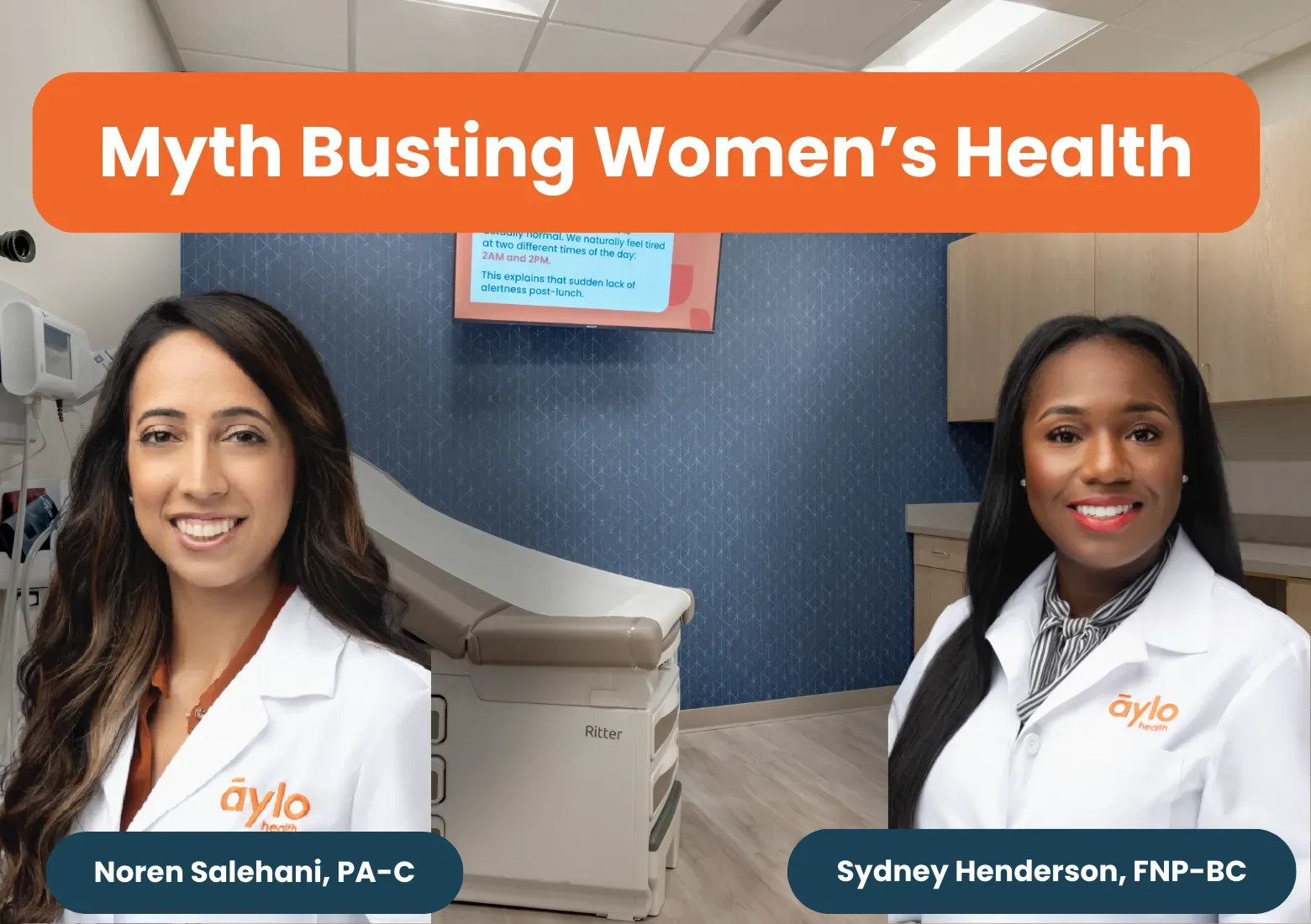Debunking Common Women’s Health Myths for Women’s Health Month
May 22 • 2025

Women’s Health Month is the perfect opportunity to shine a light on important health issues that often get overlooked or misunderstood. From preventive care to lifestyle habits, there are many misconceptions that can affect a woman’s well-being. Let’s take a closer look at some of the most common women’s health myths and provide the facts you need to stay informed, healthy, and empowered.
Think you know women’s health? Watch this video with Noren Salehani, PA-C and Sydney Henderson, FNP-BC to uncover the truth behind the most common myths that could be affecting your well-being.
Myth: You Only Need a Pap Smear Every 5 Years
Busted: While recent guidelines from the American College of Obstetricians and Gynecologists (ACOG) suggest that women ages 21 to 29 should get a Pap smear every 3 years, and those aged 30 to 65 may be able to space out their screenings to every 3 to 5 years if their results are normal, the reality is that this doesn’t mean you can skip your regular checkups.
Pap smears, which screen for cervical cancer, are only one part of your overall health checkup. Annual well-woman exams, even when you don’t need a Pap smear, are crucial for catching other health issues, such as breast health, hormone imbalances, and mental health concerns. Discuss your individual needs with your healthcare provider to establish the best screening schedule for you.
Myth: Osteoporosis is Only a Concern for Older Women
Busted: Osteoporosis isn’t something that just happens after menopause. In fact, bone loss can begin as early as your 30s, and it tends to accelerate as you approach menopause. By the time women reach the age of 65, bone density loss can be so severe that fractures become more likely from even a small fall or bump.
Early prevention is key. Building strong bones during your younger years through adequate calcium and vitamin D intake, regular weight-bearing exercises like walking or weightlifting, and avoiding smoking and excessive alcohol can help mitigate the risk of osteoporosis later in life. Discuss bone health with your doctor if you’re concerned or have a family history of osteoporosis.
Myth: I Don’t Need a Mammogram if I Do a Breast Self-Exam
Busted: While performing regular breast self-exams is a good practice, it’s not enough on its own to detect early signs of breast cancer. Many breast cancers don’t present with symptoms in the early stages, and a self-exam can’t detect all types of abnormalities, particularly those deep within the breast tissue.
Mammograms are an essential tool for early detection. They can identify small tumors or suspicious tissue long before they can be felt manually. The American Cancer Society recommends that women begin annual mammograms at age 40, or earlier if they have a family history of breast cancer. Early detection through mammograms has been shown to significantly increase survival rates, which is why they remain a cornerstone of breast health.
How Aylo Health Supports Women’s Health
At Aylo Health, we are committed to providing evidence-based care and supporting women’s health every step of the way. Our primary care team is dedicated to dispelling these myths and offering personalized, up-to-date care. We encourage women to stay proactive about their health by staying informed and seeking regular screenings and checkups.
Remember, your health is an ongoing journey, and the more you know, the better equipped you’ll be to make informed decisions that work best for your unique needs. If you haven’t had a recent checkup, don’t wait—schedule an appointment with Aylo Health today. Our providers are here to provide compassionate, patient-centered care and to ensure that all women, regardless of age, feel empowered to prioritize their health.